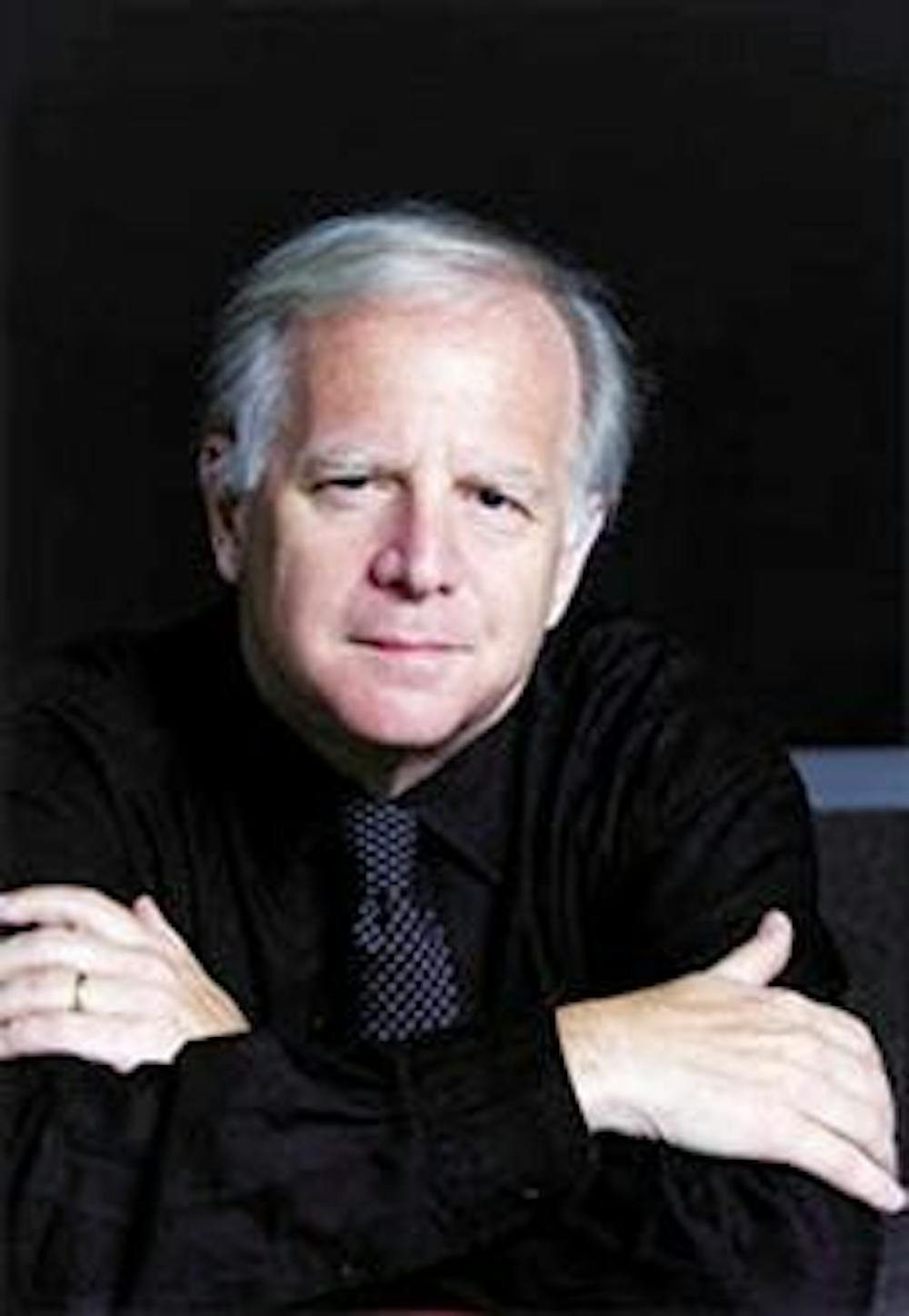Leonard Slatkin, world-renowned music director of the National Symphony Orchestra, came to the Katzen Arts Center on Feb. 21 for a master class and Q-and-A session. The event was held in the Abramson Family Recital Hall and featured Slatkin leading an open rehearsal with the American University Symphony Orchestra while students, faculty and community members watched from the audience.
According to Department of Performing Arts Assistant Professor Fernando Benadon, it was a great experience for both members of the orchestra, as well as those in the audience who appreciate music.
"Students in the orchestra can really benefit from playing under different conductors because they learn different styles," he said. "Especially one with the stature of Leonard Slatkin."
Members of the orchestra concurred with this assessment. Principal Second Violinist Josiah Lambert, a junior in the College of Arts and Sciences, said Slatkin "demanded the orchestra's full respect for the composer's wishes in an oft-overlooked area: playing very quietly. Playing loud and brash is easy but playing softly takes concentration."
Concertmaster Michelle Crosby agreed.
"He was very focused on details and the vibration of the instruments," she said.
Although the master class was aimed at members of the AU Symphony Orchestra, there were other musicians in the audience at the request of DPA faculty members. AU Director of Choral Activities Daniel Abraham invited his entire chorus to come.
"I invited my chorus because you can always glean information in a music master class, he said. "A violinist can learn something from a choral master class, just like a singer can learn something from an orchestra master class.
After Slatkin led the orchestra in a rehearsal of Tchaikovsky's Symphony No. 5 for its upcoming spring concert, he turned around from the podium. During this section of the event, he took pre-screened questions from the audience and music program director Nancy Snider. The questions varied from how he chooses what to perform to how he decides which pieces to select by current composers. But his answer on how to save classical music from extinction produced the most interest.
According to Lambert, Slatkin's idea regarding integrating music into the history curriculum was original and profound.
"He pointed out the rift that exists in the public curriculum between social studies and the arts, Lambert said. "Music-and all other art-cannot be divorced from the time and place in which it was created. Likewise, history should not be separated from the art which reflects it."
Apart from the DPA, other members of the community were pleased that a well-known cultural figure paid a visit to AU. College of Arts and Sciences Dean Kay Mussell said it was a real coup having Slatkin coming to American, and she believed the Katzen Arts Center is a major reason for that.
"Washington gives us access to experts in the fields," she said "Katzen gives us the space to exhibit this work and it is also a great draw for the community. Attendance in the art gallery has been great and it keeps people coming back to the university."
Starting this year Slatkin will join the faculty at Indiana's Jacobs School of Music, where he will teach composition and conducting part time. Next week, he will conduct the National Symphony Orchestra with narrator John Lithgow in an NSO Family Concert titled "Whereforth Art Thou, Shakespeare?" at the John F. Kennedy Center for Performing Arts.





